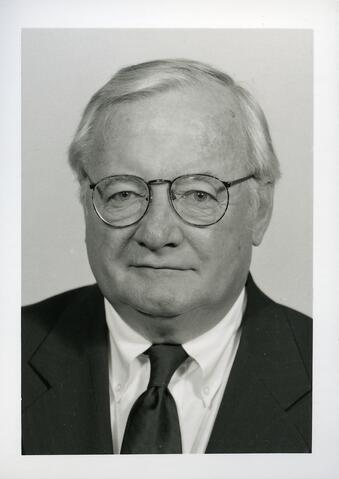
Title and statement of responsibility area
Title proper
Dr. Ian M. McDonald - Portrait
General material designation
- Graphic material
Parallel title
Other title information
Title statements of responsibility
Title notes
Level of description
Item
Reference code
Edition area
Edition statement
Edition statement of responsibility
Class of material specific details area
Statement of scale (cartographic)
Statement of projection (cartographic)
Statement of coordinates (cartographic)
Statement of scale (architectural)
Issuing jurisdiction and denomination (philatelic)
Dates of creation area
Date(s)
-
[ca. 1992] (Creation)
Physical description area
Physical description
3 photographs : b&w ; 10 x 8 cm
2 negatives : b&w ; 6 x 4 cm
Publisher's series area
Title proper of publisher's series
Parallel titles of publisher's series
Other title information of publisher's series
Statement of responsibility relating to publisher's series
Numbering within publisher's series
Note on publisher's series
Archival description area
Name of creator
Custodial history
Scope and content
Head and shoulders image of Dr. Ian M. McDonald, dean of Medicine.
Bio/Historical Note: Born at home in Regina on 20 May 1928, Dr. Ian M. McDonald graduated from Central Collegiate, then earned a BA at the then-Regina campus of the University of Saskatchewan. He attended the University of Manitoba and earned his MD there. Following internship and residency in Vancouver, Regina, and Saskatoon, Dr. McDonald moved to Denver, Colorado, where he worked in medicine. In 1958 he accepted the invitation of Dr. D.G. McKerracher to join the newly created Department of Psychiatry in the College of Medicine at the University of Saskatchewan. He would succeed Dr. McKerracher as department head and eventually served two terms as dean (1983-1992) of the college, before retiring into a psychiatric consultancy with RUH and the Saskatoon Health Region. He continued the work that he loved until just before his 81st birthday. Dr. McDonald leaves a rich legacy reflecting his lifelong dedication to improving the lot of the mentally ill in Canada. He worked with his mentor McKerracher on the internationally recognized "Saskatchewan Plan," which sought to deinstitutionalize psychiatric patients from large hospitals to local clinical communities as a more effective mode of treatment. A respected expert in forensic psychiatry, Dr. McDonald offered testimony in the 1965 trial of Everett George Klippert, the last Canadian incarcerated for simply being gay. This trial led to the decriminalization of gay sex in 1969 by Prime Minister Pierre Trudeau. Klippert was released from prison in 1971 and pardoned by Prime Minister Justin Trudeau in 2017. This change in law helped Peter MacKinnon establish the ongoing program "Psychiatry and the Law" in the U of S College of Law. A member of numerous provincial and federal commissions on mental health issues, he chaired the committee that produced the landmark "Report on the Forgotten Constituents" for Saskatchewan's Mental Health Association. Dr. McDonald’s contributions to his community and discipline earned him recognition from the Canadian Mental Health Association, and he received the one-time 50th Anniversary Golden Award from the Canadian Psychiatric Association, which noted his "lifelong dedication to biopsychosocial psychiatric care, rural community services, and his leadership in reforming mental health systems in Saskatchewan." Dr. McDonald died in Saskatoon in 2013.
Notes area
Physical condition
Immediate source of acquisition
Arrangement
Language of material
Script of material
Location of originals
Availability of other formats
Restrictions on access
There are no restrictions on access.
Terms governing use, reproduction, and publication
Copyright holder: University of Saskatchewan
Copyright expires: Unknown
Other terms: Responsibility regarding questions of copyright that may arise in the use of any images is assumed by the researcher.

